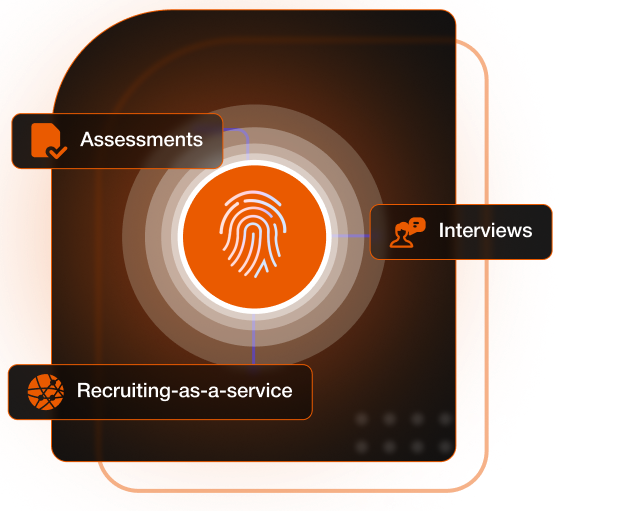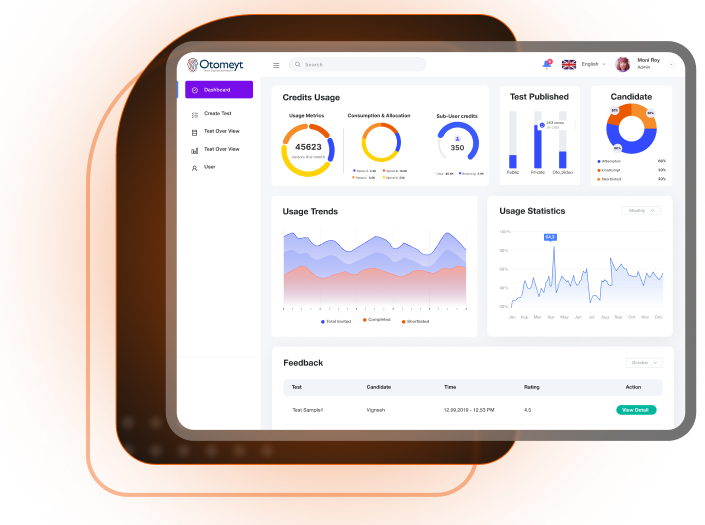Seekers and Employers
Connect with top talent, explore exciting career opportunities, and leverage cutting-edge
AI solutions to drive real results
The fastest way to land your dream job. Upload your CV, let our AI assess your strengths, and explore personalized job matches from top companies
Empower your hiring with AI-driven talent solutions built for speed, precision, and long-term impact. Explore our SaaS offerings, product-led services, and more
Trusted by top brands to transform the way they hire-smarter, faster, and with lasting impact
Otomeyt AI ranks among the top 1% of global innovators unifying recruiting, assessments, and interviewing into one seamless platform
A unique, product-led staffing model designed to scale effortlessly with your hiring needs
Seamlessly integrate every stage of hiring-from sourcing to onboarding-within a single AI-powered platform
Future-proof your workforce with next-gen AI led solutions that are designed to amplify your recruitment efforts
powered by AI
Assess your skills, uncover growth areas, and explore AI-matched job opportunities-all
in one intelligent platform
Understand your potential with precision using our state-of-the-art, AI-powered skill assessment tool. Join the elite curated club by getting your skills ranked and stand out from the crowd
Discover your next career move through our smart recommendation engine or browse all open roles on our global job board, tailored to your unique strengths
Identify exactly where you need to improve and use AI-driven insights to build the skills that matter most to your career
we do
Otomeyt made my job search incredibly smooth! Their AI-powered matching connected me with roles that perfectly aligned with my skills. I landed my dream job in just a few weeks-highly recommended!
I was struggling to get interviews until I found Otomeyt. Their intelligent screening not only improved my resume but also matched me with companies that valued my unique experience. The entire process was fast and hassle-free!

